Cinegrell Lab eyes international opportunities for film production and film preservation
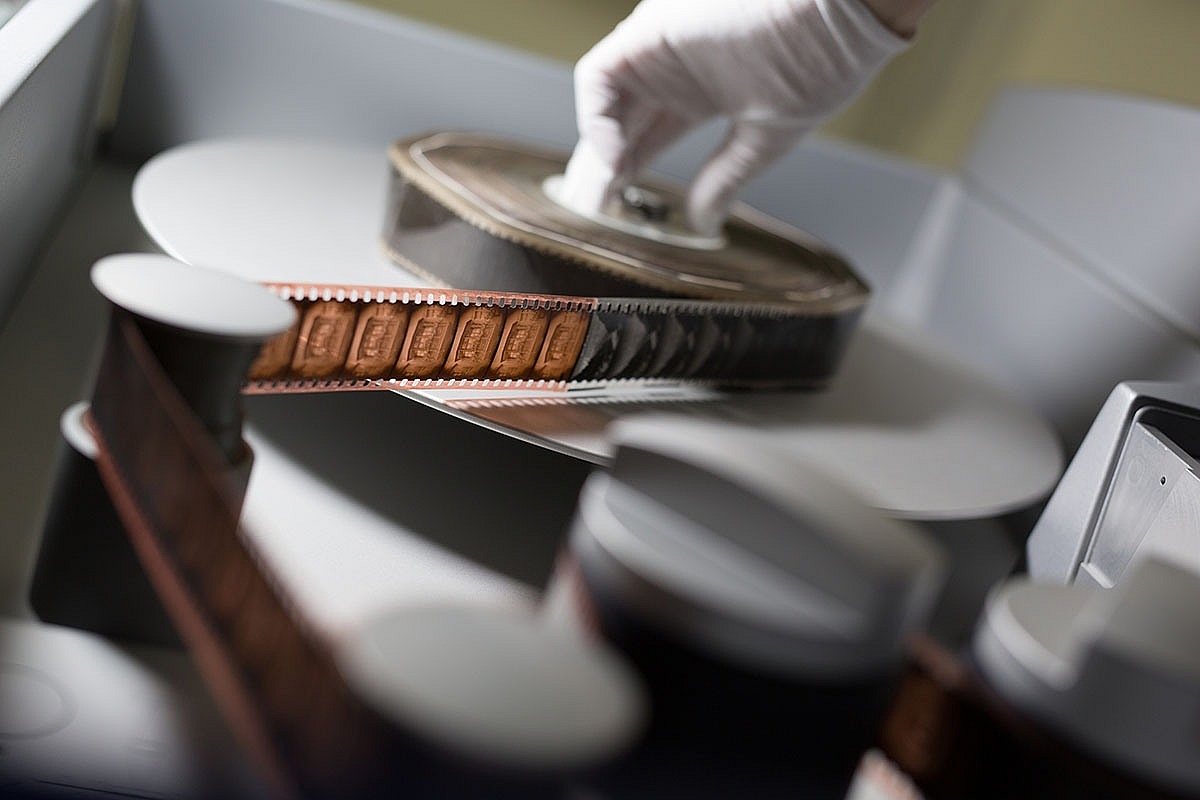
Cinegrell’s ARRISCANNER in-action.
If you have ever had the fortune to visit Switzerland, then you will no doubt have been struck by the outstanding quality of its engineering prowess – from civil projects enabling transport links through precipitous mountain ranges to the minutiae of the mechanical movements in desirable timepieces.
“Like a really good wristwatch, we are ‘Swiss Made’ too,” says Richard Grell, managing director and founder of photochemical lab, production rental and digital post house Cinegrell in Zürich. “We deliver first-class quality and precision here, which is why people come to us and keep coming back to us.”
Established in 1995 initially as an HD video camera rental and crewing house, Cinegrell has steadily expanded its range of services to encompass analog film cameras, film processing, restoration and archiving, along with high-end digital color grading, editorial and VFX post production. Located close to Zürich international airport, the company counts local film/documentary makers, Swiss national TV and radio broadcaster SRF, and the prestigious Cinémathèque Suisse national archive among its many clients.
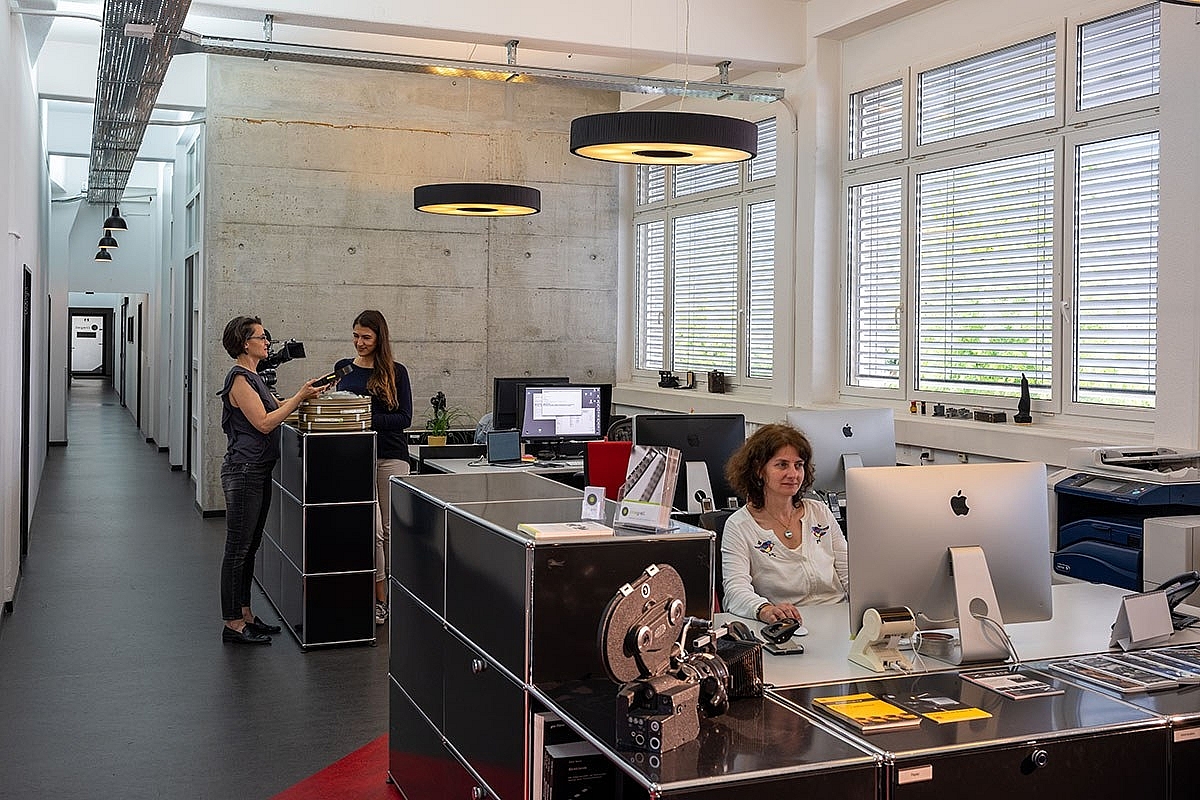
Cinegrell’s smart Zürich offices.
“We are proud to be the only active photochemical, cinematic film lab in Switzerland and to complement that analog resource with state-of-the-art digital facilities – all supported by experienced technicians,” remarks Grell, who oversaw the purchase of Egli Film lab in 2013 and its subsequent integration into Cinegrell. “We are particularly passionate about keeping film alive – as a medium for both production and long-term preservation – and are actively seeking to encourage new international business from outside the local Swiss market.”
While Cinegrell provides a full range of digital camera rentals, it also offers an inventory of 16mm and 35mm film cameras, including ARRI 416, ARRI 435, ARRICAM LT and Aaton Penelope 35mm. They also offer a range of film lenses – Leica Summilux-C, Zeiss Master Anamorphics, ARRI Signature Primes – plus Cooke, Sigma, Angenieux and Fujinon glass.
“Our film cameras and lenses are maintained in perfect working order and, as we bought the cameras for very reasonable prices, we are able to offer them at very reasonable prices,” Grell states. “So if you want to shoot on film or digital in Switzerland, come to us, we are ready to help.”
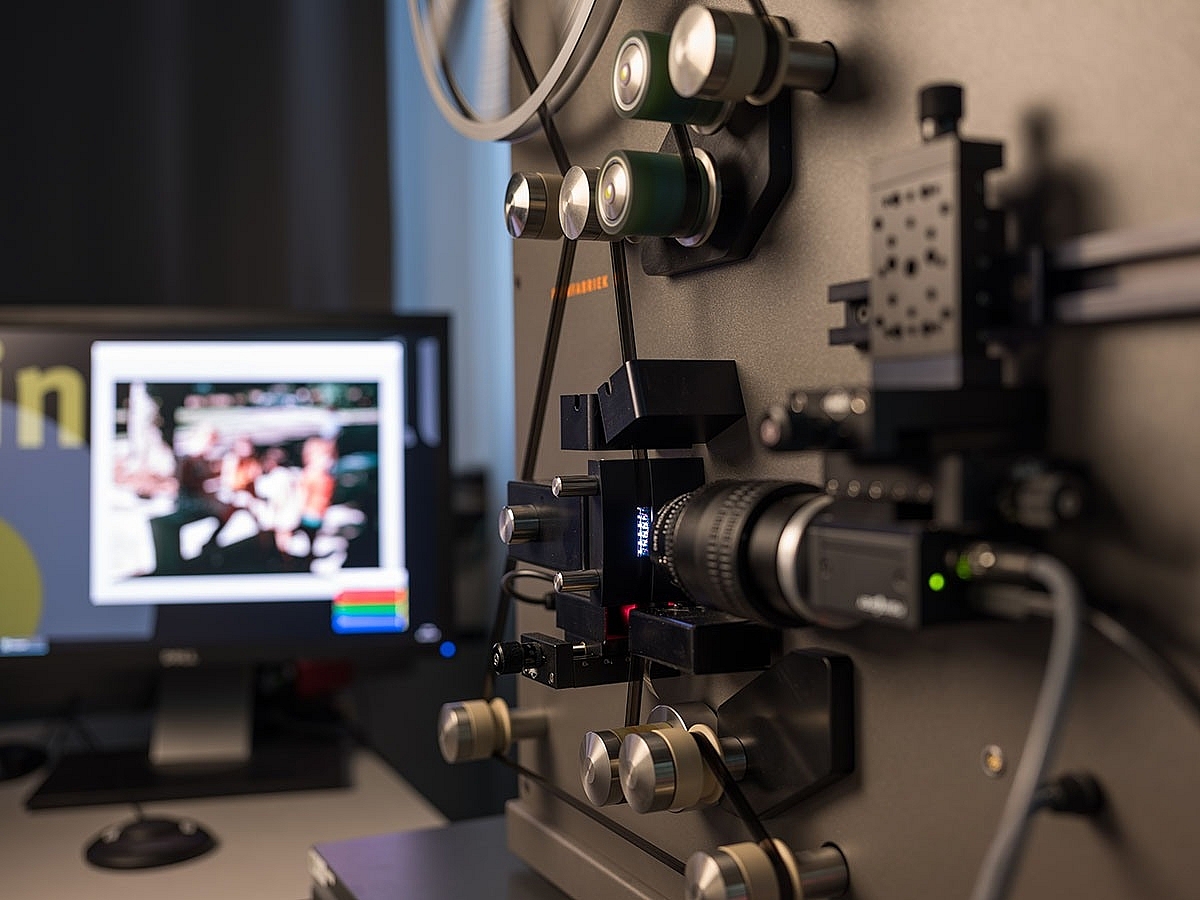
Cinegrell also offers Super8mm scanning.
Local clients using Cinegrell’s camera/lens equipment include the Swiss producer/directors Thomas Imbach for projects such as Mary Queen of Scots (2013) and Day Is Done (2011) and Xavier Koller for his feature Little Mountain Boy (2015). Dutch cinematographer Remko Schnorr hired Cinegrell’s Penelope, shooting in 2-perf mode, for director This Lüscher’s drama Rider Jack (2015), while French DP Hélène Louvart AFC deployed an ARRI 416 for the 16mm production of Il Nido (The Nest) (2016) directed by Klaudia Reynicke. The filmmakers also went on to use the company’s laboratory, dailies, digital scanning and post-production facilities.
Cinegrell’s photochemical laboratory services include 16mm and 35mm color negative (ECN-process), plus B/W positive/negative processing, using KODAK Kit chemistry, along with ultrasonic and manual cleaning. For film restoration, Cinegrell undertakes manual inspection, analysis and repair services on all types of splices, including old film stock, such as nitrate, and broken perforations.
Analog film is digitized at 2K or 4K via a brace of ARRISCANNERs, with the ability to perform sprocketless and pinless scanning of nitrate and acetate reels that may be in delicate and fragile states. Scanned materials are then treated to an array of the most up-to-date digital restoration processes – in either manual or automated workflows. The company’s in-house digital grading theatre is equipped with 4K color correction with subtitling and DCI capabilities.
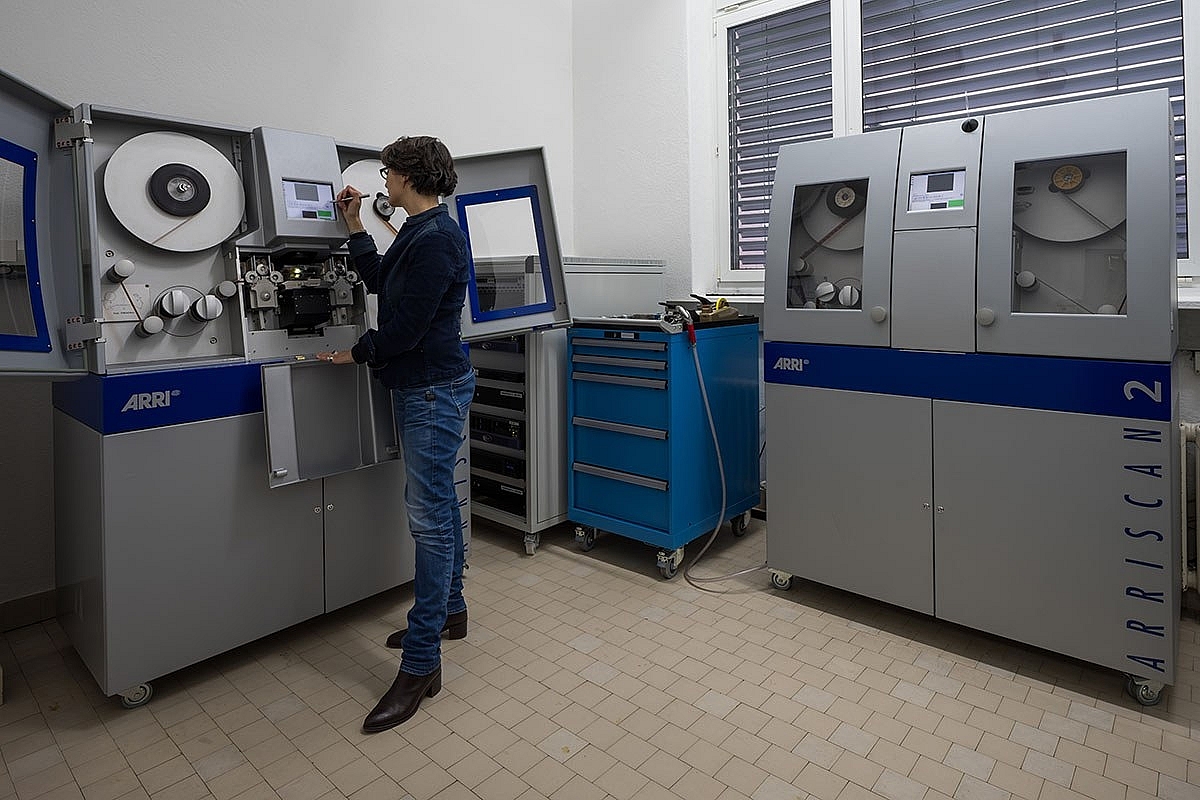
The film scanning room at Cinegrell, Zürich, Switzerland.
In 2018, working from the original 35mm material, the company completed full digital restoration on the classic 1950s Swiss romantic comedies Uli Der Knecht (Uli The Farmhand) and Uli Der Pächter (Uli The Tenant), both directed by Franz Schnyder, plus Kurt Früh’s melodrama Oberstadtgass(1956) – all for SRF.
Most recently, Cinegrell was enlisted to provide scanning for Dau, Ilya Khrzhanovsky's hotly-anticipated biopic about the life of Nobel Prize–winning physicist Lev Landau. Dau, which recreates Stalinist-era Russia, was shot over the course of several years, on 35mm film, and involved Cinegrell scanning a formidable 1,750 reels of film at 2K, for the better part of a year.
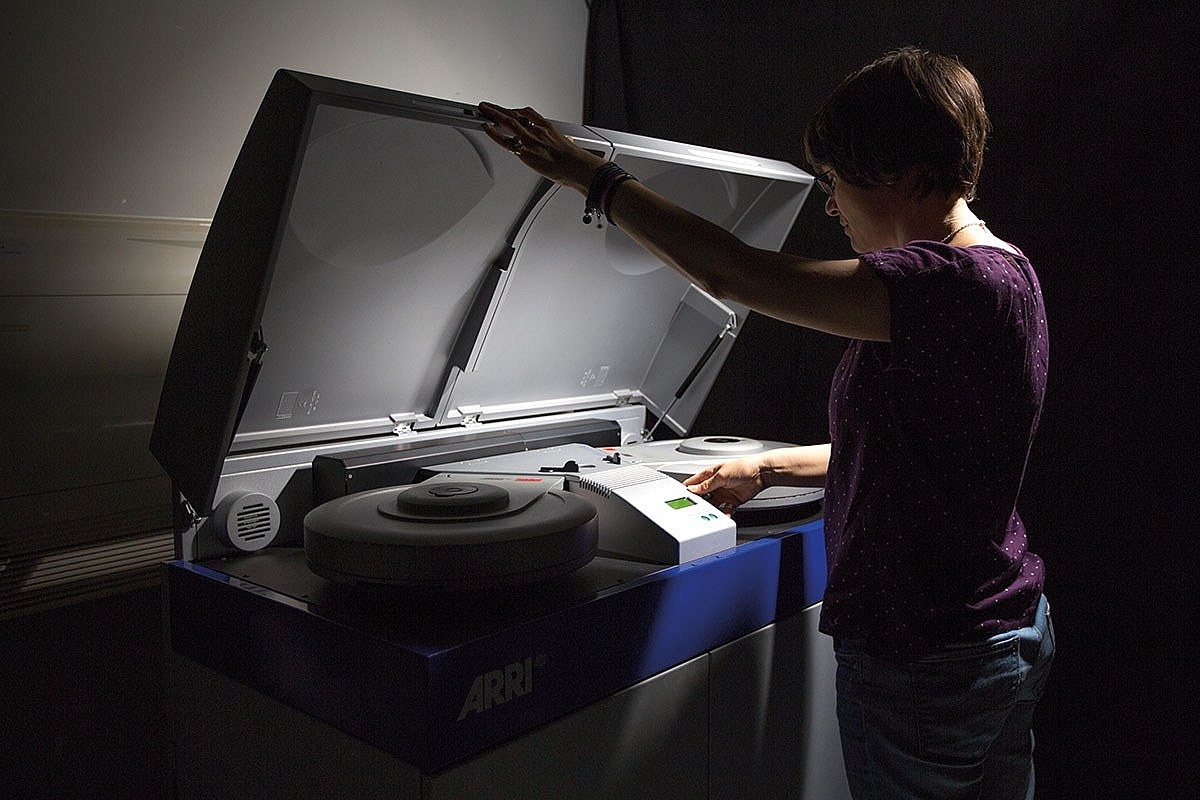
Laser film-outs at Cinegrell, Zurich, Switzerland.
Upon client request, long-term archiving and preservation at Cinegrell sees digital image data transferred to 35mm polyester-film via dual ARRILASERs – one calibrated for B&W, the other for color film-outs.
Along with Cinémathèque Suisse, Cinegrell’s film archiving and preservation clients include International Red Cross in Geneva and the many different cantons around Switzerland, which all hold their own archives. A recent project involved scanning 550 reels of heritage film, some in rather poor physical condition held by the Canton of Graubünden, followed by full digital restoration and preservation of many reels back to 35mm. Cinegrell is also an active supporter of Fédération International des Archives du Film (FIAF).
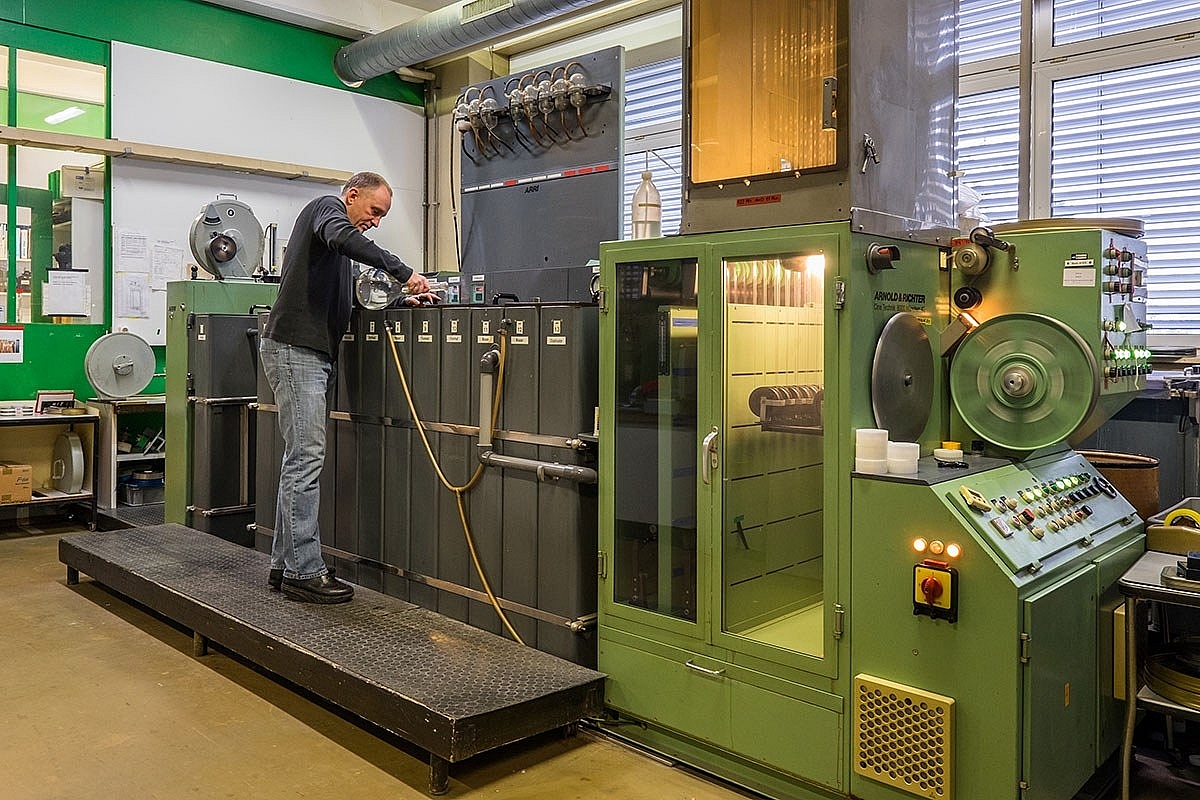
Cinegrell’s photochemical film baths
“In practice, we maintain a focus on quality restoration according to international standards,” says Grell. “We regularly participate in FIAF congresses and seminars around the world to continually deepen our knowledge and to spread the word about our film preservation services.”
Of course, it is tempting to think that storing assets on hard drives or LTO is cost-effective, convenient and safe, but Grell is quick to dispel these notions.
“I tell clients that the only way to achieve long-term security is to record back to film,” he says. “Digital equipment, digital formats and digital methodologies are not safe enough at the moment. Data has to be managed, migrated between platforms, and there’s no guarantee that the software to read that data will work in 10 or 20 years from now. And what would you do in the event of drop-outs and equipment failure?
“So I always recommend film as the best long-term storage medium to our clients. A well-stored reel will give you easy access and full, visual quality for a very, very long time – perhaps 200 years or more.”
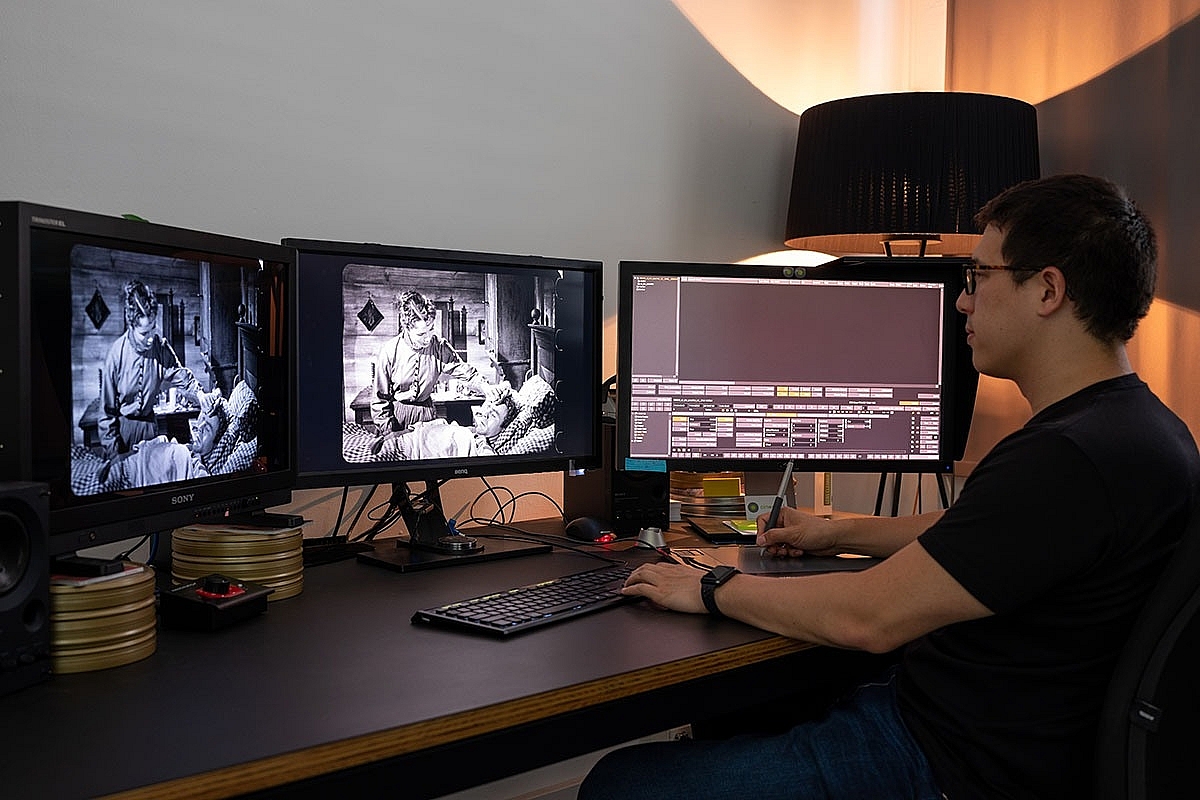
Digital film restoration at Cinegrell.
Looking to the future, Grell says it is his intention to expand the company’s business by attracting international productions and restoration/preservation work from neighboring countries in Europe, the UK and the US.
“Whether you are producing a film for cinema or TV, require a camera team, or wish to process, digitize and preserve your old films, you will be in the right hands at Cinegrell. It’s all here. We offer very good package deals, and we would love to assist you.”
For more information visit: www.cinegrell.ch